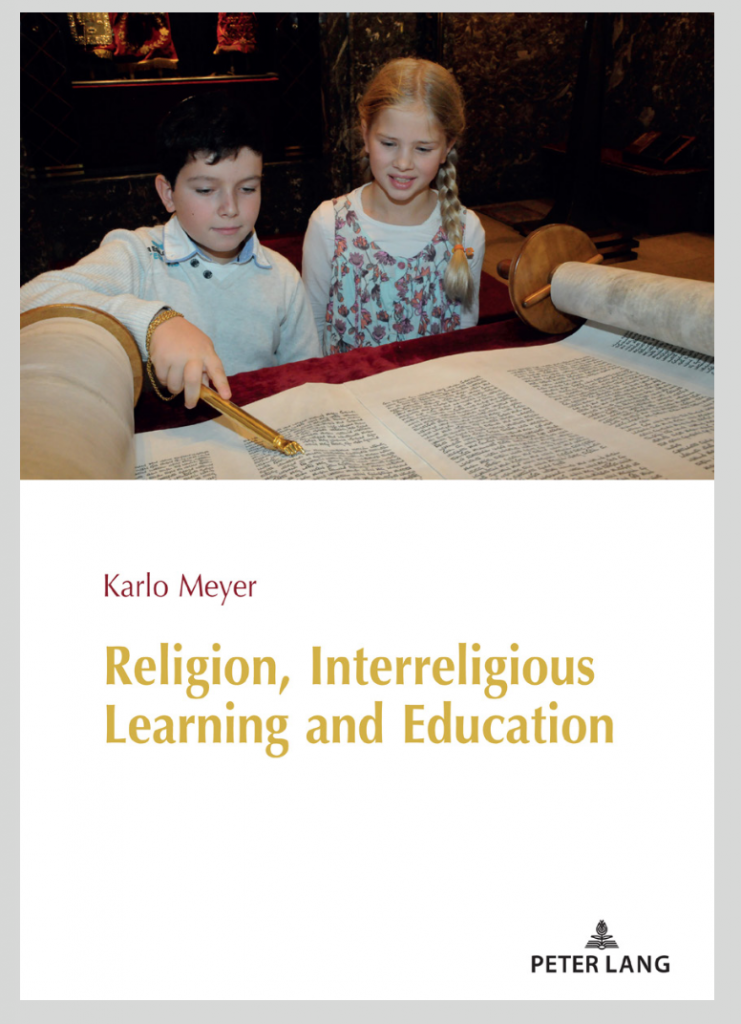
Religion, Interreligious Learning and Education
By Karlo Meyer
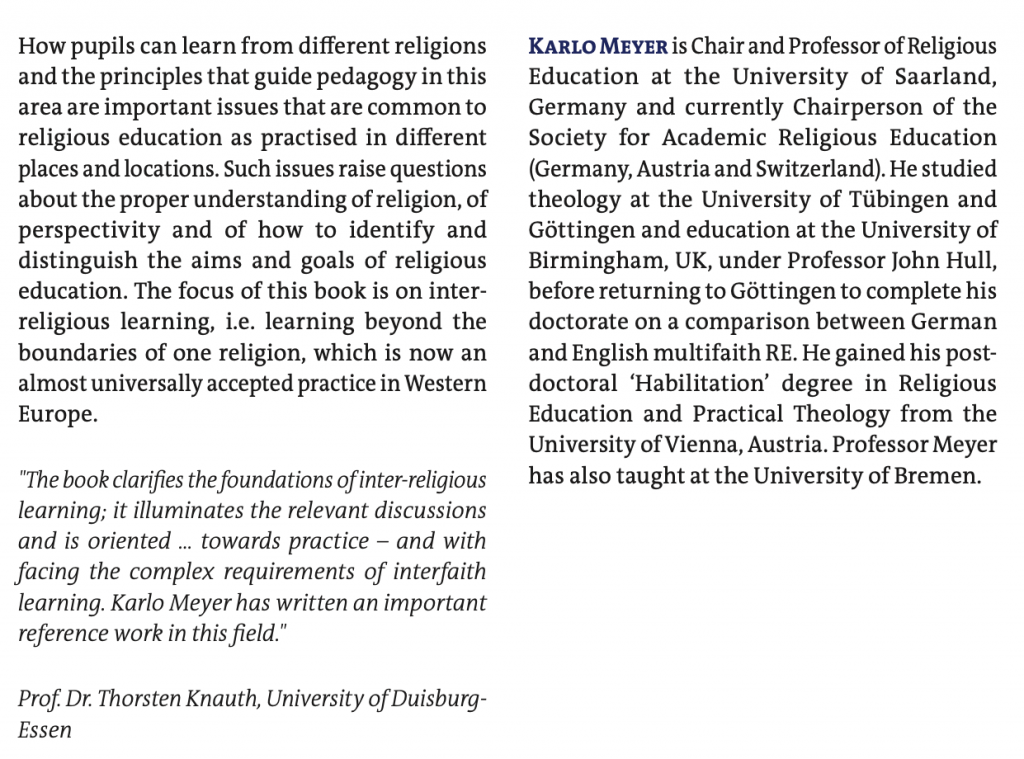
Greetings ISREV friends. Some of you will be aware of Professor Terry Lovat from Newcastle, Australia. A Festschrift in his honour is published by Springer with the title Education, Religion and Ethics: A Scholarly Collection (2023). Edited by Dr Di Rayson, with contributions from Peta Goldburg, myself and others you may know from ISREV or elsewhere. It is a diverse and useful collection. Check it out at https://link.springer.com/book/10.1007/978-3-031-24719-4
Mark Hillis

Religion, Education and Values
Edited By Leslie J. Francis, Rob Freathy, Stephen Parker and Mandy Robbins
Debates about religion, education and values are more central to contemporary society than ever before. The challenges posed by the interaction between these different spheres will continue to increase as the effects of globalization and cultural pluralization impact on educational settings. Our radically changed and rapidly changing environment poses critical questions about how we should educate individuals to live in increasingly diverse societies.
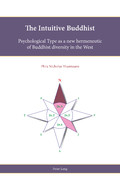
The Intuitive Buddhist: Psychological Type as a new hermeneutic of Buddhist diversity in the West
Phra Nicholas Thanissaro
ISBN:978-1-78997-187-3DOI:https://doi.org/10.3726/b15055
By examining teenage heritage and convert Buddhist communities in the West through the lens of Psychological Type, this book presents hard evidence from hundreds of self-identifying Buddhists in the UK, that the diversity of Buddhists, previously described in terms of ethnic dichotomy, is better explained in terms of Psychological Type preferences. By moving past biologically determined features such as ethnicity, the book represents a long overdue yardstick for the full spectrum of diversity within the Buddhist community – since Psychological Type preferences, such as the sliding scale of Intuition, give more predictive nuance and avoid orientalist prejudice. The book puts Buddhism on the map of Psychology of Religion by showing the statistical links between personality and more than twenty individual differences, including tendency to meditate or visit the temple. The hermeneutic of intra-Buddhist diversity described in this book, apart from providing a mirror of self-understanding for individual Buddhist practitioners, can be applied by anthropologists of Buddhism, Religious Education stakeholders and chaplains to ensure equality and objectivity in their work. Meanwhile, the book’s relatable ‘Type Compass’ style of graphic presentation represents a common ‘language’ for religious study that invites comparison between Buddhism and other faith traditions.
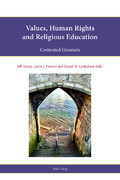
Values, Human Rights and Religious Education: Contested Grounds
Edited By Jeff Astley, Leslie J. Francis and David W. Lankshear
ISBN:978-1-78874-527-7DOI:https://doi.org/10.3726/b14257
This volume brings together three key and contested areas facing educationalists within schools, colleges and universities: values education, religious education and human rights education. Challenges and opportunities within each of these three areas may be illuminated and explored by bringing them into creative dialogue.
These core constructs were explored in a recent seminar convened by the International Seminar on Religious Education and Values, the leading international association for religious educators and values educators across the world. This volume presents twenty-one key contributions made to the seminar, spanning both conceptual and empirical perspectives and rooted in both religious and secular traditions. It draws together a unique collection of international perspectives on the interlocking themes of values, human rights and religious education.
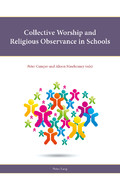
Collective Worship and Religious Observance in Schools
Edited By Peter Cumper and Alison Mawhinney
ISBN:978-1-78707-657-0 DOI https://doi.org/10.3726/b11312
This book examines the law and policy governing school acts of collective worship in England, Northern Ireland and Wales, and their equivalent in Scotland, which is known as religious observance. The fact that the majority of UK schools (including non-denominational ones) are required by law to organize acts of collective worship/religious observance for their pupils has provoked significant controversy in recent decades. Yet, perhaps surprisingly, there has (to date) been a relative paucity of published interdisciplinary scholarly material on such matters. In seeking to rectify this anomaly, the book takes a holistic approach whereby it examines the nature and consequences of the collective worship/religious observance duty from a variety of perspectives. These range from examining the law and policy governing collective worship/religious observance in each country within the UK, to exploring the legal and educational challenges and opportunities thrown up by the current obligations. In addition, scholars from beyond the UK offer insights into the possibilities and dilemmas that the current statutory duties pose for schools and wider society. The aim of this book is to shine a light on an important issue that has often been neglected and ignored by policymakers
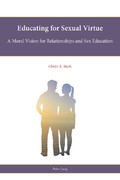
Educating for Sexual Virtue: A Moral Vision for Relationships and Sex Education
Olwyn E. Mark
ISBN:978-1-78874-098-2 DOI:https://doi.org/10.3726/b10544
Relationships and Sex Education (RSE) is an issue surrounded by controversy and debate, with important implications for the interconnected roles of the state, the school and the home and for the way we understand ourselves, our sexual identity and our personal relationships.
This book charts the development of the moral and spiritual narrative in RSE policy in England. In particular, it expounds and critiques the popular moral narrative of «informed choice»: an approach which advocates providing young people with the maximum amount of information around their sexual choices and defends a view of sexual morality which holds that anything goes, as long as it is in private, between consenting adults and harms no-one else.
Alongside a comprehensive critique of this narrative, the book offers a unique contribution to the ongoing development of the moral and spiritual framework of RSE by presenting a Christian vision of a sexually and relationally educated young person. In particular, this enriched vision explores the cultivation of the virtues of Christian love and chastity.
The findings presented here are highly significant for anyone concerned with developing and delivering RSE within a robust moral framework.
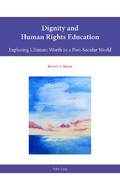
Dignity and Human Rights Education: Exploring Ultimate Worth in a Post-Secular World
Robert A. Bowie
ISBN:978-1-78707-208-4DOI:https://doi.org/10.3726/b10419
This book addresses the question of human rights education in a world that is witnessing a resurgence of religion in public life, and a continuation of religion across much of the globe, long after secularization theories predicted its decline. Promoting a universal vision of human rights while acknowledging religious diversity is a challenge for schools. This book starts with the basic premise that human rights are grounded in a belief in the dignity and ultimate worth of the human person. Drawing on key philosophical and theological sources for understanding dignity, it builds a vision of human rights and religious education that seeks to square the impossible circle of universal human rights education in a religiously diverse world.
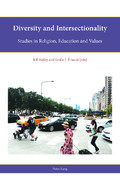
Diversity and Intersectionality: Studies in Religion, Education and Values
Edited By Jeff Astley and Leslie J. Francis
ISBN:978-1-78707-111-7DOI:https://doi.org/10.3726/b10410
This volume brings together two core concepts that are central to understanding the social and public significance of religions and theologies within the contemporary world and are therefore of key importance to the discipline of religious education: diversity and intersectionality. Religious diversity requires an understanding of religions and theologies and their roles within a plural society. However, the effect of the intersectionality of multiple social identities on a person’s flourishing illuminates the ways in which the broader complexity of diversity must be viewed from different perspectives.
These core constructs were brought together in a recent conference convened by the International Seminar on Religious Education and Values, the leading international association for religious educators across the world. This volume presents twelve key contributions made to the seminar, spanning both conceptual and empirical approaches, and represents a unique collection of international perspectives on the interlocking themes of intersectionality and diversity.
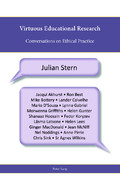
Virtuous Educational Research: Conversations on Ethical Practice
Julian Stern
ISBN:978-3-0353-9674-4DOI:https://doi.org/10.3726/978-3-0353-0831-0
This is a book of conversations with researchers working across Europe, the USA and Africa. It aims to illuminate the lived reality of educational research on a wide variety of topics, including family life in rural South Africa, support for self-harming students in the UK, character development in the USA and Korea, educational leadership in the UK and China, philosophical analysis of education policy, and much more.
The book is for and about researchers and is built around a set of conversations with the author – a fellow researcher. Researchers work at the frontiers of our knowledge and understanding of the world, and frontiers can be dangerous places. How are the researchers’ personal qualities – virtues such as courage, honesty and kindness – tested and exemplified in their work? The conversations presented here explore the experience of research and ask what qualities are needed, or wished for, in order to successfully face its challenges. There are many books that include lists of what to do and what not to do when carrying out research. Here, in contrast, we find out what really happens and why – and what it takes to keep going. Show Less
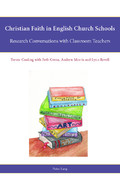
Christian Faith in English Church Schools: Research Conversations with Classroom Teachers
Trevor Cooling, Beth Green, Andrew Morris and Lynn Revell
ISBN:978-3-0353-9606-5DOI:https://doi.org/10.3726/978-3-0353-0819-8
Church schools are booming, becoming increasingly popular with parents across the world. However, research shows that teachers face considerable challenges as they try to offer a distinctively Christian education within a church school context. This book is the account of a qualitative research project investigating the joys and difficulties experienced in English church school classrooms. The research team spent a year working alongside fourteen teachers from Catholic and Church of England secondary schools, introducing them to What If Learning, a pedagogical initiative designed by an international team of educationalists to support teachers in developing Christian approaches to teaching and learning. The highs and lows of the teachers’ experience are documented in this book and the lessons that emerge are explored in detail. The findings of the project are highly significant for all those involved with church school education and point towards valuable new ways of thinking about Christian faith and learning.
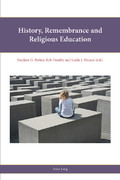
History, Remembrance and Religious Education
Edited By Stephen G. Parker, Rob Freathy and Leslie J. Francis
ISBN:978-3-0353-9467-2DOI:https://doi.org/10.3726/978-3-0353-0681-1
How should the Holocaust be taught in schools, and to what end? What role should religious education play in recounting and remembering this human catastrophe? How has the nature and purpose of religious education changed and developed over time? What contribution should religious education make to identity formation, particularly regarding the role of memory, heritage and tradition? The scholarly reflections in this volume, drawing upon historical, theoretical and empirical perspectives, provide insights into past, present and potential future developments in religious and values education in a range of national contexts, including Germany, Israel, Norway, Canada and South Africa. The chapters fall under three headings: fostering a culture of remembrance; historical perspectives on religious education; and history, tradition, memory and identity. Together they form a unique collection of international perspectives upon these interlocking themes.
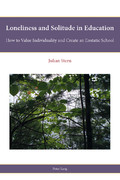
Loneliness and Solitude in Education: How to Value Individuality and Create an Enstatic School
Julian Stern
ISBN:978-3-0353-9883-0DOI:https://doi.org/10.3726/978-3-0353-0608-8
Analysing loneliness and solitude in schools and exploring how to deal with them is a vital task. In recent research for the author’s Spirit of the School project, a number of pupils, teachers and headteachers described times when they felt lonely and times when they felt the need for healthy solitude. The causes of loneliness are numerous and its consequences have a significant unrecognised impact on education. How do schools deal with people when they are lonely, and how can they overcome loneliness? How can they create opportunities for healthy solitude, a welcome alternative to loneliness? Schools can sometimes try to include people by being intensely social, but end up making them feel even more excluded. A school that teaches solitude well and helps individuals deal with loneliness can be called an ‘enstatic’ school: a school in which people are comfortable within themselves. The objective of this book – the first comprehensive study of the subject – is to help us all understand loneliness and solitude and thereby to reinvigorate debates on personal, character and values education.
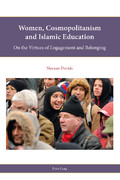
Women, Cosmopolitanism and Islamic Education
On the Virtues of Engagement and Belonging
Nuraan Davids
ISBN:978-3-0353-0515-9DOI:https://doi.org/10.3726/978-3-0353-0515-9
Contemporary impressions of Islām – especially in the post-9/11 world – are creating daunting challenges for Muslims everywhere. Muslim women, because of their specific mode of attire, seem to be at the forefront of the growing skepticism surrounding Islamic education. Ironically, it would appear that the same detailed attention devoted by Islamic scholars to the conduct of Muslim women now surfaces in contemporary debates, focusing on the exclusionary practices they remain subjected to in their communities. Yet because these debates seldom move beyond continued.
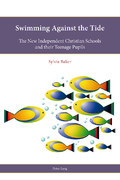
Swimming Against the Tide: The New Independent Christian Schools and their Teenage Pupils
Sylvia G. Baker
ISBN:978-3-0353-0457-2DOI:https://doi.org/10.3726/978-3-0353-0457-2
This book addresses an issue of considerable current interest and importance: what is and what should be the role of religion in the education process of a modern, secular society? The subject is tackled through an indepth investigation of a recently established network of small independent Christian schools. First, the controversy itself is examined: what are the arguments for and against faith-based schools in the unique setting of the United Kingdom? Subsequently, the schools themselves are introduced and the key issues are described in detail. The focus then shifts to the teenage population of the schools. Who are these young people? How do they think and what do they believe? These questions are answered by analysing the results of an extensive survey and, where possible, comparisons are made with the attitudes and beliefs of the wider population of British teenagers. The findings show that the young people in the new Christian schools hold different values from many of their peers, and it is argued that the differences are of a positive rather than a negative nature.
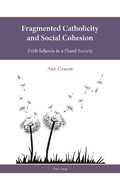
Fragmented Catholicity and Social Cohesion: Faith Schools in a Plural Society
Ann E. Casson
ISBN:978-3-0353-0415-2DOI:https://doi.org/10.3726/978-3-0353-0415-2
Faith schools make visible a connection between religion and education, a much-contested aim. Principled arguments are frequently made for and against these schools, without evidence from empirical research. This book attempts to address the issues raised by religious education by offering a rich in-depth ethnographic case study of Catholic secondary schools, exploring pupils’ perceptions of life in the Catholic secondary school in twenty-first-century England. The findings suggest that although the crucifix is in all classrooms, the Catholicity within the school is changing. Catholic pupils are constructing fragmentary Catholic identities; they are asserting a ‘right to bricolage’.
This book considers questions pertinent to all faith schools, such as the extent to which they may contribute to or detract from social cohesion, and the extent to which a faith school is able to and/or ought to maintain and transmit the memory of faith tradition in a secular and plural society.
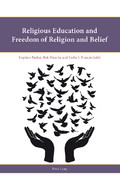
Religious Education and Freedom of Religion and Belief
Edited By Stephen Parker, Rob Freathy and Leslie J. Francis
ISBN:978-3-0353-0335-3DOI:https://doi.org/10.3726/978-3-0353-0335-3
What opportunities and challenges are presented to religious education across the globe by the basic human right of freedom of religion and belief? To what extent does religious education facilitate or inhibit ‘freedom of religion’ in schools? What contribution can religious education make to freedom in the modern world? This volume provides answers to these and related questions by drawing together a selection of the papers delivered at the seventeenth session of the International Seminar on Religious Education and Values held in Ottawa in 2010. These reflections from international scholars, drawing upon historical, theoretical and empirical perspectives, provide insights into the development of religious education in a range of national contexts, from Europe to Canada and South Africa, as well as illuminating possible future directions for the subject.
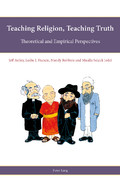
Teaching Religion, Teaching Truth: Theoretical and Empirical Perspectives
Edited By Jeff Astley, Leslie J. Francis, Mandy Robbins and Mualla Selçuk
ISBN:978-3-0353-0297-4 DOI:https://doi.org/10.3726/978-3-0353-0297-4
Religious educators today are called upon to enable young people to develop as fully-rounded human beings in a multicultural and multifaith world. It is no longer sufficient to teach about the history of religions: religion is not relegated to the past. It is no longer sufficient to teach about the observable outward phenomena of religions: religion is not restricted to practices, artefacts, and buildings observable in the outside world. It is also necessary to take seriously what religions believe about themselves, and what religions believe about other religions.
Seen from the inside, religions deal in the currency of truth. For the religions themselves, truth matters. Truth-claims can lead to harmony and peace, but they may also engender discord and violence. What ultimately counts is how one set of truth-claims confronts or embraces the truths claimed by other, different voices. Therefore those who teach religion cannot avoid dealing with the theology of religions.
In this collection of original essays, religious educators shaped by both Christian and Islamic worldviews discuss the problems and opportunities that now face educators and believers alike, as they are confronted by the challenge of teaching religion and teaching truth. The discussion nurtured at the sixteenth conference of the International Seminar on Religious Education and Values is here developed further, to stimulate wider reflection and shape good local practice.